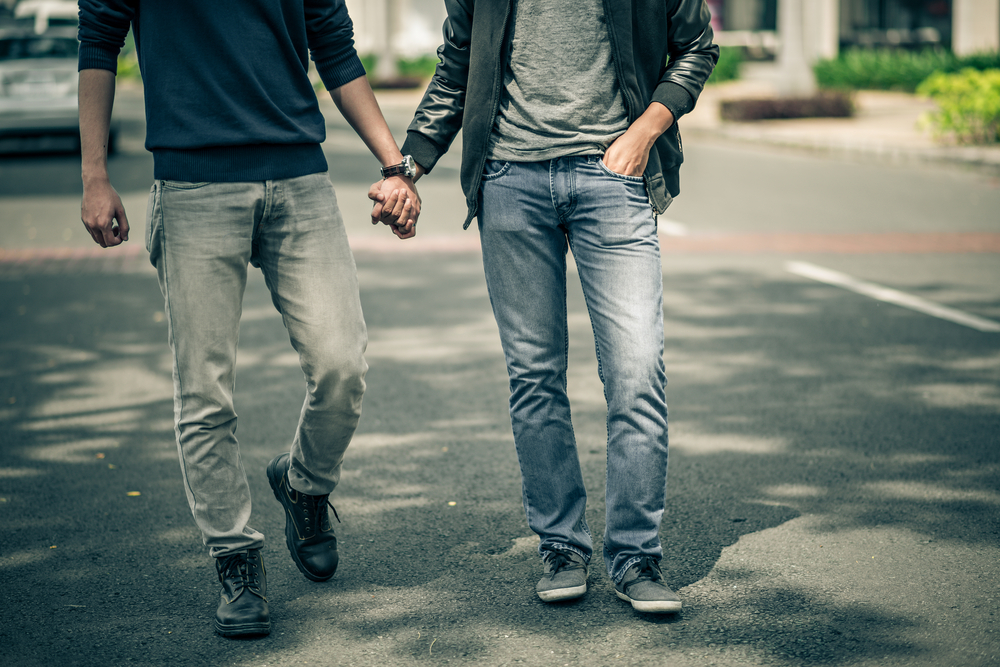
Gay Relationships: For Better or Worse
By: Dr. Tyler Fortman
Most people love. Most people form relationships. Some people stay together. Some people split up. That part isn’t so different in gay relationships. Yet, differences do exist – some incredibly positive and some extremely distressing. Let’s explore the factors that strengthen gay relationships and what factors threaten them?
(For) Better:
Responsibilities are Negotiated
Let’s face it – our society expects us all to assume certain roles based on our gender. In gay relationships, there isn’t a default set of roles and responsibilities. Therefore, gay couples must negotiate all aspects of their relationship.
Gay couples have the opportunity to decide how each partner will support the relationship based on their interests, abilities, and convenience. Because there isn’t a reliance on unconscious assumptions, members of gay relationships can also feel more agency to share roles and change roles as needed. This flexibility and conscious process increases the cohesion between partners.
The discussions about roles offer communication advantages as well. Gay couples are able to learn communication skills (i.e., listening, reflecting, asking for one’s needs, etc.) with low-stakes conversations. Engaging in conversations about who will take out the garbage serves as communication practice for conversations that carry much more emotional weight, like how to ask your partner’s mother to stop making comments about your clothing choices (just a hypothetical example, of course).
Sex is Liberated
The lack of gendered expectations doesn’t end with house chores (just because we are talking about the bedroom doesn’t mean we’re talking about chores). Instead, the lack of a default roles applies to sex in gay relationships too. Gay partners aren’t constrained by what others think sex should look like. Absent these expectations, gay partners engage in the acts that they find most sexually appealing and satisfying. Coming out and overcoming homophobia further empower gay partners to resist taboos that often govern sex in heterosexual relationships. Without expectations and taboos, gay relationships can focus on sexual fulfillment.
Sex is a topic of conversation too; well frankly, it has to be. Absent pre-established roles, gay partners have to communicate the roles that they enjoy and are willing to play. This allows them to be much more open to communicating all of their sexual wants and needs. Social rules also encourage gay men to talk about their past sexual experiences, which provides an opportunity for vulnerability and closeness while also allowing them to bring more of their sexual selves into their relationships.
Initial Connections are Strong
Yes, gay partners often fall hard! Similar gender role conditioning and biology catalyze high levels of initial rapport and strong initial connections. Because of their matching gender and biology, it may be easier for gay partners to initially know what is pleasing for their partner and to understand, give, and respond in ways that their heterosexual counterparts may have to develop over time. Additionally, the process of coming out (and potential loneliness of that period) intensifies the emotional bond. (Spoiler Alert: These same factors intensify the likelihood for disillusionment too.)
Conflict is Controlled
Research out of the Gottman Institute, a worldwide leader in the study of romantic relationships, suggests that gay couples enter conflict situations more gently. They take turns talking and listen to each other better during conflict. They also attack each other less (e.g., fewer accusations, less domineering, less accusatory) and are more likely to use humor to de-escalate the situation.
So what? The importance of approaching conflict in ways that aren’t attacking is that the start of conflict is a great predictor of how the conflict will end – either with a resolution that is comfortable to both partners or damaging to either or both partners.
Attraction is Accepted
Heterosexual relationships are often plagued by fears that one’s partner might be attracted to someone else. This often results in rigid rules as an attempt to maintain some kind of control of the other’s attraction and the security of the relationship (i.e., rules surrounding opposite sex friends, rules around contact with ex’s, etc). Unfortunately, these external restraints do little to cultivate safety and security in the relationship.
In gay relationships, partners are more likely to embrace the reality that other people are attractive. In fact, many gay men even build friendships after having a hookup with another man. Gay partners must respond by building internal restraints and even talking about their attractions to others in the relationship. Through this process, security can be felt without feeling overly confined.
Independence is Expected
Gay relationships feel the impacts of misogyny equally. (Note: It’s terribly sad that any couples are impacted by misogyny.) As a result, the misogynistic messages that the man in the relationship should hold the power don’t apply to gay relationships. Gay partners are, therefore, less likely to attempt to control the other’s decisions – how/when to interact with family, financial decisions, or even career decisions.
So, with all these factors strengthen gay relationships, how can they ever go wrong?

(For) Worse:
Lack of Community Support:
You’re probably thinking about “community support” in a large, societal context. We seem to be primed to do this (and maybe rightfully so). Nonetheless, it is worth noting that our society as a whole does influence gay relationships (often more so based on the intersection of other identities – socioeconomic status, race, age – as well).
As a result, we continue to see gay communities clustering in urban areas and even in specific neighborhoods, institutionalized discrimination such as lack of employment protection, higher rates of mental health concerns, and so on.
Despite the challenges posed by the larger societal context, gay relationships (specifically gay men) may be most negatively impacted by the social norms within gay communities. For young gay men, sex and lots of it, is seen as the ideal. Men who choose monogamous relationships face scrutiny (through questions about why to finding their choice as the punchline of jokes), messages that something is wrong with them, and even fewer environments in which to socialize. Even close friends, may pry relationships apart (or exacerbate the negatives in a relationship) in order to regain their “single” friend. As a result, these men often feel trapped between choosing their desire for a monogamous relationship and their desire for a connection to a gay community or other gay friends.
Unfortunately, it doesn’t stop there. It seems to be less taboo for single gay men to make advances on men in relationships (a likely outcome of both lack of respect for relationships and the high proportion of gay relationships that have open sexual agreements).
Outside comparisons of partners is much more common as well. These comparisons can exacerbate competition in the relationship (see below) and result in feelings of inferiority and unworthiness. Finally, gay men in their 50’s, 60’s, and 70’s sometimes question the value of relationships and the benefits of defining romantic relationships at all (we can talk about why another time, but it’s certainly related to their experiences of oppression and fear of losing the benefits of a segregated community).
Gender Differences
We’ve all heard that men are from Mars and women are from Venus. The reality is that gender differences do exist and can create challenges in gay relationships. In particular, women’s interest in “nesting” or committing strongly (while offering advantages such as the motivation to meet one’s partner’s needs and solve problems), can also lead to enmeshed relationships.
On the other hand, traditionally masculine traits such as competition, lack of emotionality, and desire for independence can create its unique challenges for gay men in relationships with each other. Gay men gay easily feel competitively toward their partner. This tendency to compete can inhibit gay men from supporting one another, create struggles for control, and catalyze the urge to distance oneself from the relationship.
Varying Levels of “Outness”
You probably know that coming out involves discovering and embracing your identity through a series of stages. Unless you’ve been in one, however, you might not have considered how different stages of “outness” can negatively impact a relationship. The desire to explore one’s self requires experimentation and observation (e.g., consider a baby that stares at its hands).
Therefore, gay relationships in which members have varying levels of outness need to navigate each person’s individual need to explore and learn about themselves along with the needs of the relationship. These types of relationships are fairly common and, unfortunately, the potential for trust to be violated may increase.
Undeniably, societal expectations have an impact on all of us – especially marginalized groups. People who are gay are forced to evaluate their true selves and find the resiliency to share this self with the world. This process of evaluating one’s self on the deepest level creates a foundation from which intimacy and connection can flourish.
Still, people who are gay and in relationships face the obstacles of expectations and communities (including gay communities) that don’t always support their relationships. Hopefully, understanding and noticing these influences can empower you to embrace the positive and overcome the negative.

